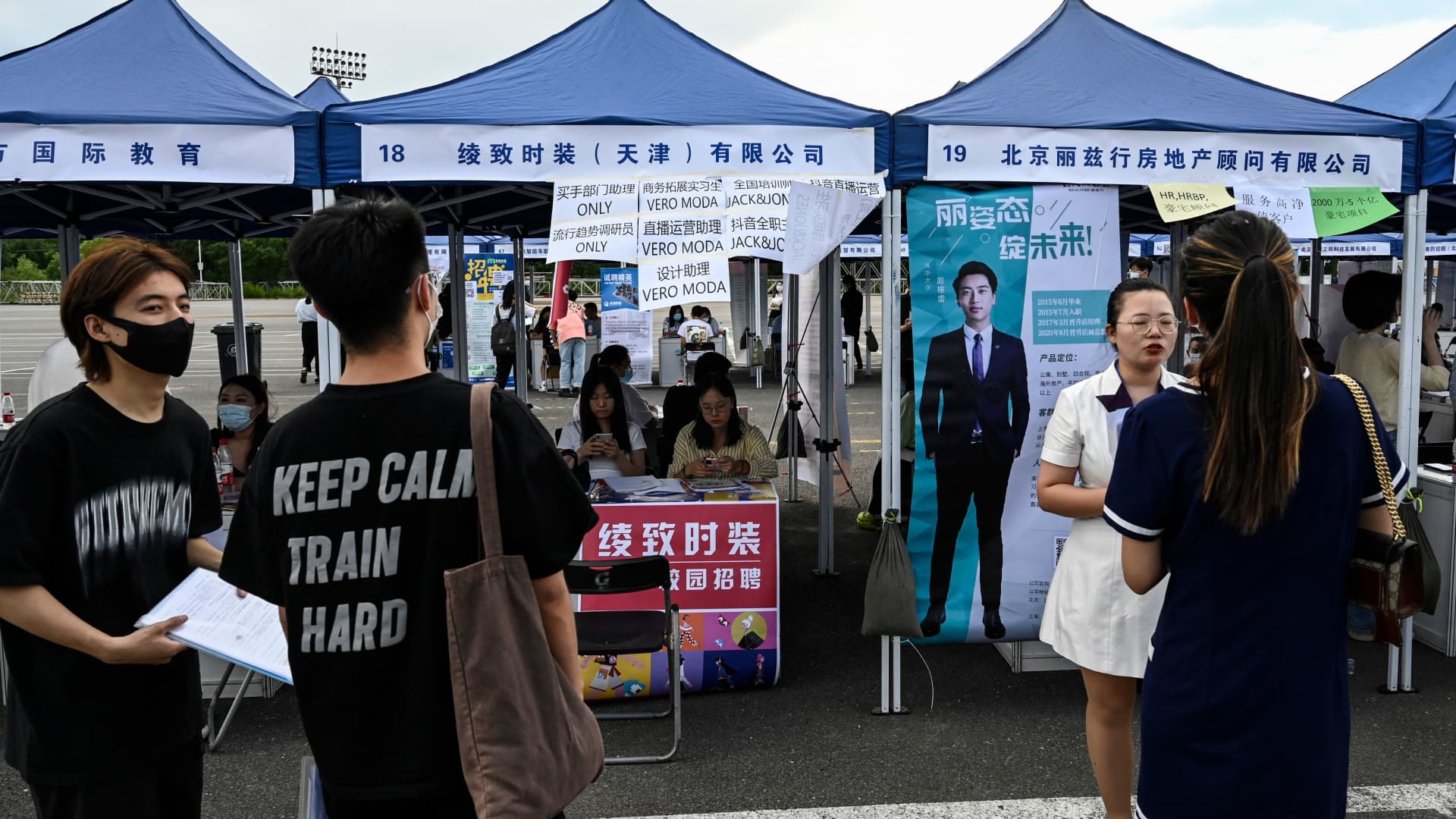Job worries? Here’s how China stacks up against the U.S. and other countries

BEIJING — More people in China and Brazil are worried about their jobs than in the U.S. and U.K., according to a survey by consulting firm Oliver Wyman released this month.
In China, 32% of respondents said they were concerned about the impact of inflation on their job security, as did 30% of respondents in Brazil, the report said.
But in the U.S. and U.K., that figure was just 13%, the survey found.
Unemployment among China’s young people aged between 16 and 24 has surged to nearly 20%, while that of the working age population in cities is about 5.4%, according to an official survey for July.
In Brazil, the unemployment rate as of July was 9.1%, official data showed.
The unemployment rate in the U.S. was a far lower 3.5% in July, and 3.6% in the U.K., according to government data.
The Oliver Wyman study focused on consumers’ views about the impact of inflation. But Hong Kong-based partner Ben Simpfendorfer noted that each country faces unique situations in addition to inflation that likely affected survey results.
In Brazil, he pointed out, “periods of very high inflation are not unusual” and that income disparities tend to be greater.
That was reflected by a high 68% of respondents in Brazil saying they were worried about their ability to pay for groceries and essential products.
While being able to afford those goods was the top area of concern for consumers in all four countries, Brazil ranked first. The U.K. was second at 48%, followed by 44% in the U.S. and 42% in China.
Job and income worries in China
In the U.S., where jobs growth and wage growth have been strong despite recession fears, “worries about household abilities to pay for groceries would be primarily inflation-related, Simpfendorfer said.
“Whereas in China, growth has been a little weaker, jobs growth for certain demographics has been weaker, workers in the tech sector have struggled recently, wage growth has been sluggish,” he said. “That may also play into concerns about the ability to pay for groceries.”
China’s economy has been dragged down by Covid controls and a property market slump. A tighter regulatory environment, especially when it comes to internet tech companies, has also weighed on sentiment.
Chinese incomes are also growing more slowly than the overall pace of price increases.
Average monthly disposable income for Chinese city residents was 4,167 Chinese yuan ($598), according to official data for the first half of the year. That was only 1.9% higher than a year ago.
In contrast, China’s consumer price index rose by 2.5% in August from a year ago, slightly off a two-year high of 2.7% reached the prior month. A rebound in pork prices, a food staple, drove much of the increase.
In terms of the economic outlook, U.K. respondents were the most pessimistic, with 75% expecting conditions to worsen, the Oliver Wyman report said. In the United States, that figure was 56%.
Chinese and Brazilian respondents were most optimistic, with 42% and 26%, respectively, expecting conditions to improve in the next half year, the survey found in July.
However, fewer than 15% of U.S. or U.K. respondents said they were motivated by recession fears to pick up new skills or take on a side job. But that share was well over 30% in Brazil and China.




